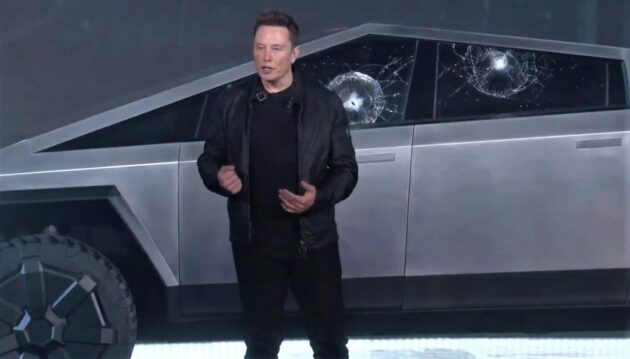
“It’s almost worth the Great Depression to learn how little our big men know.” – Will Rogers
I can tell I’m gonna need a nap after this one.
One of the most inspiring things I’ve come across on the internet in years is this: The Homemade Heat Pump Manifesto.
It’s a discussion thread started in 2009 that’s grown to 195 (!) pages. The last post was in mid-2019. The thread was created by “AC_Hacker”, whose tag line on the site is very humble: “I’m not an HVAC technician. In fact, I’m barely even a hacker…“. AC_Hacker was always the mainstay, but a great many other people dropped in for a few posts, or became regulars, each contributing ideas, knowledge and personal experiences to the tale. The central topic is ground source heat pumps, which are a way of heating and cooling a house cheaply using the earth as a thermal stabilizer. I ran across it while looking for information about heat pumps and how to customize or build them. In the “Manifesto” I found an encyclopedic answer. Anyone who reads the whole thing will come away with a strong practical and theoretical understanding of the field of refrigeration (and how to dig holes in your yard, and many other things).

But what I love about that collaborative document goes far beyond the exchange of useful information. It’s the attitude, which I’m going to call “Outsider Engineering,” in an echo of “Outsider Art.” Though mostly hobbyists, these people aren’t messing around. They’re really doing it, and doing it well. Completely without adult supervision, not under the auspices of any university, think tank or government agency. (I’m joking about “adult,” as most of them are probably geezers, but AC_Hacker does relate that he was not only inspired, but educated by some smart German kids—gamers—who figured out how to build super CPU coolers for their gaming computers using sophisticated phase-change technology.)
And now, one of the least inspiring things that’s come across my screen in a while. This came from The Conversation, a very informative website I recently started reading. After I signed up for their daily digest, they sent me an email titled “What The Conversation stands for,” from which I quote:
“This is what we value: …
Expertise: Every article is written by a university-affiliated expert — a researcher who really knows a subject.”
This tone reminded me at once of a recent article by national treasure1 Thomas Frank: The Pessimistic Style in American Politics (And its eternal war on reform) (harpers.org), which largely consists of an excellent history of the Populist Movement in America starting in 1891, and who shut it down and how, with dots connected to the present day. He shows us the sort of “journalism” which greeted the movement at its birth, and ever since:
“[Populism] is a “celebration of ignorance…even when at odds with expert judgments—including those of elected representatives and judges, scientists, scholars, journalists and commentators.”
So let’s all trust the experts. The “big men” will save us. Don’t get me wrong: I’m as horrified as anyone by the actual, and not remotely Populist, “celebration of ignorance” that holds sway over so much of the world right now. (Read the article, please!) But I object to the notion of a society that consists of a small number of insiders who are considered qualified to make important decisions and lead the country, and a vast number of victims of learned helplessness (and of artificial scarcity) who consider themselves unqualified to even contribute in a meaningful way to their own redemption or doom.
I think about World War II. It’s a green trope these days that we need a “wartime footing,” a “WWII-scale mobilization.” I agree with the sentiment, but taken literally, that effort fell far short of what we need now. (One irony is that you could say with some justification that America’s abundant, secure supply of fossil fuels was the biggest reason we won. Germany and Japan were constantly struggling to secure oil and coal, far from the homeland, or invent substitutes. We had all we could burn, and burn we did. That allowed us to make prodigious amounts of steel and crank out bombers and battleships enough to bury the enemy.)
Another way WWII is a poor model for us to follow is that all the important decisions were made in each combatant country by a small, closed cabal of leaders. Powerful men in middle age: generals, industrialists, bureaucrats, distinguished professors. Dictating the course of the war with the absolute (and perhaps sociopathic) confidence that it took to get into those positions and join the cabal in the first place. The Allied cabal eventually won out over the very similar German and Japanese cabals, and history is written by the winners, but was “our” cabal really smarter?

I look back at those few thousand white men now and think, what an extraordinary waste of brains. Did it really make sense to marginalize half the brains in the world, just because they happened to be female? Were the brains wrapped in brown skins so inferior as to have no serious contributions to make? Two and three-quarters (at least) of the three cabals certainly seemed to think so at the time2.
Decent people think differently about that now, but it’s funny how oligarchy always absorbs and digests any threat it can’t destroy outright. We still act as if we all believe that there are two kinds of people, god-like and mundane. It’s just that we now acknowledge that once in a while, a god-like individual shows up who’s female, or black, and sometimes the cabal lets them in.
My title, of course, alludes to Elon Musk (the most famous of all Elons). I know he has a fan base most rock stars would envy. (In fact, this is my secret SEO plan: mention Musk, hundreds of his fans show up to flame me if I say anything negative, instant traffic! Fail, though, because only social media exists now. Blogs are for boomers to natter on about the ’65 Ford Falcon they’re restoring, or whatever.)
Anyway, there’s much to admire about Musk. His work ethic is legendary. He’s a smart guy in engineering and science terms. He’s an absolute, astonishing genius at getting powerful people to treat his ideas as exceptional and worthy, a priori, of investment and dissemination—that to me is the striking thing about him, and what better quality to have if your goal is to change the world? It’s not entirely surprising that some look to him as a hero of our time. The attitude that “Elon will fix it,” with his electric cars and tunnels and rockets, is not just about who he is, but also about us and our culture.

I have no idea how Musk himself feels about people who say, “I’m not any kind of genius like he is. The problems are so big that it takes a generationally super-brilliant person like him to make any difference. I feel like buying a Tesla is my way of supporting his efforts, and that’s what I’m capable of.” (Not an exact quote, but people have said essentially that right to my face.) To me, that’s learned helplessness. Accepting that people like Elon, and the late Steve Jobs (also a hero to many), are people. They matter. The rest of us are sort of pets. We live as best we can in the world they make.
We could discuss to what degree Musk is a revolutionary as opposed to a co-opted insider (Tesla’s market cap of around $150 billion suggests that the “big men,” who’ve fought climate action at every turn since the ’50s, are fundamentally OK with him), but the real reason he can’t save us is simpler: He’s just one guy. With one brain. A brain which is not a million times smarter than yours, or a thousand times smarter, or even ten times smarter. That’s simply not how brains work.
Just look at how well the insiders (ours, that is) have been handling the COVID-19 crisis. In The Atlantic, George Packer writes3:
Every morning in the endless month of March, Americans woke up to find
themselves citizens of a failed state. With no national plan—no coherent
instructions at all—families, schools, and offices were left to decide on their own whether to shut down and take shelter. When test kits, masks, gowns, and ventilators were found to be in desperately short supply, governors pleaded for them from the White House, which stalled, then called on private enterprise, which couldn’t deliver. States and cities were forced into bidding wars that left them prey to price gouging and corporate profiteering. Civilians took out their sewing machines to try to keep ill-equipped hospital workers healthy and their patients alive. Russia, Taiwan, and the United Nations sent humanitarian aid to the world’s richest power—a beggar nation in utter chaos.
It might seem ridiculous, immersed as we are in the most hierarchically organized global technocracy of all time, to call for a populist movement to address the climate crisis. And it would be ridiculous, if our governmental and corporate systems were doing their job. Clearly, they aren’t.

We, the pet-like and smartphone-numbed, need to seize the controls. We should model ourselves after the crackpots—the basement tinkerers who think they’ve invented perpetual motion or infinite free gasoline. What’s important about the crackpots is that they’re not cowed. No professor, no expert is ever going to convince them that their own mind is no good. Of course, most crackpots have ideas that won’t work, but their downfall is that they struggle on in isolation, instead of collaborating. (AC_Hacker collaborated, because he wanted to build something that worked.) Greta Thunberg and other young people have been showing us one part of the path, hacking the political discourse in ways the Sierra Club never dreamed of. But the next step, the next layer of the “stack” if you like tech jargon, is for an egalitarian army of technology enthusiasts to harness that energy source and actually build stuff.
As it turns out, we live in an unusually hopeful time for egalitarian technology. The ecosystem of “DIY” (do it yourself) has exploded, with the Internet as primary catalyst, ranging from old-school discussion forums like the AC_Hacker thread, to the newer and younger “maker” movement. There are all sorts of interesting sub-currents. For example, when we outsourced the U.S. economy to China, during the same years when every U.S. citizen developed a burning hankering for a smart phone, the parts for those phones became dirt cheap, leading to hackable hardware platforms like the Raspberry Pi. Similar cheapenings gave us cool gadgets like 3D printers and plasma cutters.
On the content side, Mythbusters debuted on the Discovery Channel in 2003, bringing both “do-it-yourself” and “science-is-cool” messages to a receptive audience. YouTube started in 2005 (Google bought it in 2006) and provided a platform for more DIY goodness, with the crucial difference that while you would never be on Mythbusters, you could start your own YouTube channel. Patreon came along in 2013, in the footsteps of services like 2009’s Kickstarter. As Google increasingly tried to monetize YouTube by showing more ads and keeping more of the profits, Patreon’s subscription model made it possible for a gifted YouTuber to make a living by sharing their knowledge. I realize that welding instruction is not what pays YouTube’s bills, but things like that are the parts I care about, and it’s all out there to watch (for now; Google always seems to be monkeying with YouTube, and I hope that if they finally kill the good stuff, some non-Google alternative will spring up.)
Mind you, to have a successful YouTube channel, you have to be entertaining. Mythbusters was always an entertainment show with an educational (and inspirational) aspect4; and most YouTubers who make serious money are entertaining in some way. And that’s fine. There’s room for “talkers” as well as “doers,” and even Carl Sagan was a “doer/talker.” Plenty of room for networking, because not every creator is a good marketer too. Former Mythbuster Adam Savage seems to have successfully positioned himself as a sort of hub and mentor for lots of other creative people. He spearheaded Project Egress, a 50th-anniversary commemoration of Apollo 11 in which 44 different artists and makers coordinated to build a replica of part of the spacecraft. That’s an impressive logistical and, broadly speaking, marketing effort.

Maker-land is a whole complex ecosystem now, changing fast, and I only know about a few random bits of it. I do know that people with no formal technical education are building staggeringly impressive things every day now. That’s reason to hope. What I would like to see is the harnessing of this outpouring of egalitarian creativity for the purpose of, let’s say, our species not going off the cliff. Anyone can play; if you care about the future, you’re automatically a top-tier member of the club. Platinum card. No cabal. Then, take a look at what you as an individual have to offer, without selling yourself short. Some of us think like engineers. Some think politically. Some think socially. Some have charisma, some have great determination and perseverance. Try to start doing something with your strengths. Or if you think you have a strength but nobody else has seen it yet, just assume you have it, and start something. I’m not talking about recycling your household waste stream. Keep doing that, but think bigger. There are lots of things we could be doing to reduce carbon emissions which are very challenging, but not necessarily of interest to big corporations (too localized, not enough profit incentive, etc.)
Speaking for myself, I have a sometimes-OK engineering mind, so that’s what I’m trying to leverage, with great hubris, and a bachelor’s degree from the 1900’s. It’s not much to work with, but Greta Thunberg is just a Swedish teenager who’s missed a lot of class hours, and she’s having an impact. Just give up the learned helplessness. It’s not a good look.
And organize. That’s crucial. Form teams, split up assignments. Learn to work and play well with others. That’s something I need to be better at. But one way or another, your thoughts have to be cross-checked by other excellent brains. There are more than 7 billion excellent brains alive right now, all at once. The largest parallel supercomputer in the universe, probably. Let’s run our problems through it. For example, there are a million or two employed engineers in the U.S.5 Call it one out of every 200 people. There are surely at least an equal number of others, one more out of every 200, who have the aptitude, and in some cases the education, but aren’t able to use it at present. Can we hack that situation? Organize a shadow technology collective? Get them working on our shared fate?
Any ideas?
“But man’s capacities have never been measured; nor are we to judge of what he can do by any precedents, so little have been tried.” – Henry David Thoreau, Walden
- https://www.tcfrank.com/
- I’m not saying old white man brains aren’t any good. I own one!
- We Are Living In A Failed State
- Many were the times I yelled at the TV when I felt Mythbusters was getting the science too egregiously wrong, just like I yelled at Bill Nye before that; all part of the experience, I suppose.
- There were about 1.6 million engineers employed in the United States in May 2015. https://www.bls.gov/opub/ted/2016/employment-and-wages-of-engineers-in-2015.htm
Thank you David, great topic! If fungi, coral, ants and so many other earth creatures can work together to build an amazing home, we should be able to too.
That’s a fantastic post. No-nonsense, yet inspiring. I’m going to read it several more times!
Thanks!